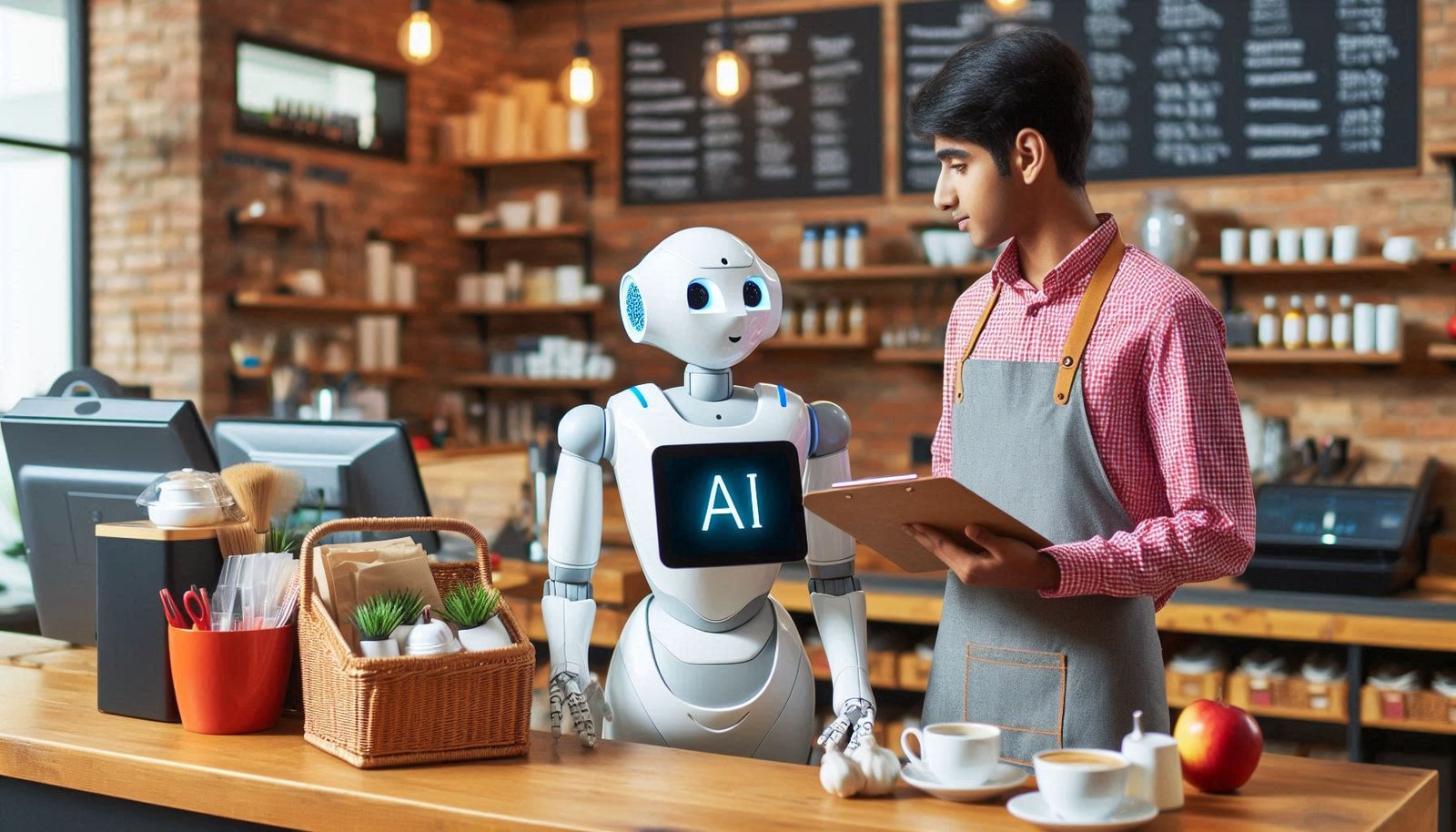
In recent years, the retail industry has undergone a significant transformation, largely driven by advancements in technology. Among these advancements, Artificial Intelligence (AI) stands out as a game-changer. The integration of AI technology in retail has not only enhanced operational efficiency but also improved customer experiences, making it a vital component for businesses aiming to thrive in a competitive market. This article explores the various applications of AI technology in the retail sector, highlighting its benefits, challenges, and future prospects.
Understanding AI Technology in Retail
AI technology refers to the simulation of human intelligence in machines that are programmed to think and learn like humans. In the retail sector, AI encompasses a wide range of applications, from inventory management to personalized marketing strategies. By leveraging AI, retailers can analyze vast amounts of data, predict consumer behavior, and automate various processes, ultimately leading to increased sales and customer satisfaction.
1. Enhancing Customer Experience
One of the most significant applications of AI technology in retail is enhancing customer experience. Retailers are increasingly using AI-driven chatbots and virtual assistants to provide 24/7 customer support. These AI tools can handle inquiries, provide product recommendations, and assist with order tracking, ensuring that customers receive immediate assistance.
Example: Chatbots in Retail
Chatbots powered by AI technology can engage with customers in real-time, answering questions and guiding them through the purchasing process. For instance, a customer visiting an online clothing store can interact with a chatbot to find the right size or style, making the shopping experience more efficient and enjoyable.
2. Personalized Marketing Strategies
AI technology enables retailers to create personalized marketing strategies that resonate with individual customers. By analyzing customer data, including purchase history and browsing behavior, retailers can tailor their marketing efforts to meet the specific needs and preferences of their target audience.
Example: Recommendation Systems
Recommendation systems are a prime example of AI technology in action. Retail giants like Amazon and Netflix use sophisticated algorithms to analyze user behavior and suggest products or content that align with their interests. This not only increases the likelihood of a purchase but also enhances customer loyalty.
3. Inventory Management
Effective inventory management is crucial for retail success, and AI technology plays a pivotal role in optimizing this process. AI-driven inventory management systems can predict demand, track stock levels, and automate reordering processes, reducing the risk of overstocking or stockouts.
Example: Demand Forecasting
AI algorithms can analyze historical sales data, market trends, and external factors to forecast demand accurately. This allows retailers to make informed decisions about inventory levels, ensuring that they have the right products available at the right time.
4. Price Optimization
Pricing strategies are essential for maximizing profits in retail, and AI technology can significantly enhance this process. By analyzing competitor pricing, market trends, and customer behavior, AI algorithms can recommend optimal pricing strategies that attract customers while maintaining profitability.
Example: Dynamic Pricing
Dynamic pricing is a strategy that adjusts prices in real-time based on various factors, such as demand fluctuations and competitor pricing. Retailers like Walmart and Target utilize AI technology to implement dynamic pricing, ensuring they remain competitive in the market.
5. Fraud Detection and Prevention
Fraud is a significant concern in the retail industry, and AI technology offers robust solutions for detecting and preventing fraudulent activities. AI algorithms can analyze transaction patterns and identify anomalies that may indicate fraudulent behavior.
Example: Transaction Monitoring
AI-driven transaction monitoring systems can flag suspicious activities in real-time, allowing retailers to take immediate action to prevent losses. This not only protects the business but also enhances customer trust and security.
6. Supply Chain Optimization
AI technology is revolutionizing supply chain management in retail by providing insights that enhance efficiency and reduce costs. AI algorithms can analyze data from various sources, including suppliers, logistics, and market demand, to optimize the entire supply chain process.
Example: Predictive Analytics
Predictive analytics powered by AI can forecast potential disruptions in the supply chain, such as delays or shortages. Retailers can use this information to proactively address issues, ensuring a smooth flow of products from suppliers to customers.
7. Visual Search Technology
Visual search technology is an innovative application of AI that allows customers to search for products using images instead of text. This technology enhances the shopping experience by enabling customers to find items quickly and easily.
Example: Image Recognition
Retailers like ASOS and Pinterest have implemented image recognition technology that allows users to upload images and find similar products available for purchase. This not only simplifies the search process but also increases the chances of conversion.
8. In-Store Experience Enhancement
AI technology is not limited to online retail; it is also transforming the in-store shopping experience. Retailers are using AI-driven tools to analyze customer behavior in physical stores, optimizing store layouts and product placements.
Example: Smart Shelves
Smart shelves equipped with AI technology can monitor inventory levels in real-time and provide insights into customer interactions with products. This data helps retailers make informed decisions about product placement and promotions, ultimately enhancing the in-store experience.
9. Employee Training and Management
AI technology can also play a role in employee training and management within the retail sector. AI-driven training programs can provide personalized learning experiences for employees, ensuring they are equipped with the necessary skills to excel in their roles.
Example: Virtual Reality Training
Virtual reality (VR) training programs powered by AI can simulate real-world retail scenarios, allowing employees to practice their skills in a safe environment. This innovative approach to training enhances employee performance and confidence.
10. Challenges and Considerations
While the applications of AI technology in retail are promising, there are also challenges that retailers must consider. These include data privacy concerns, the need for significant investment in technology, and the potential for job displacement due to automation.
Data Privacy
As retailers collect and analyze vast amounts of customer data, ensuring data privacy and security is paramount. Retailers must comply with regulations such as the General Data Protection Regulation (GDPR) to protect customer information.
Investment in Technology
Implementing AI technology requires a substantial investment in infrastructure and training. Retailers must weigh the costs against the potential benefits to determine the feasibility of adopting AI solutions.
Job Displacement
The automation of certain tasks through AI technology may lead to job displacement in the retail sector. Retailers must consider how to balance automation with the need for human employees, ensuring a smooth transition for their workforce.
Conclusion
The application of AI technology in the retail sector is transforming the way businesses operate and interact with customers. From enhancing customer experiences to optimizing inventory management, AI is proving to be an invaluable asset for retailers. As technology continues to evolve, the potential for AI in retail will only expand, offering new opportunities for innovation and growth.
Retailers that embrace AI technology will not only stay competitive but also create a more personalized and efficient shopping experience for their customers. As we look to the future, the integration of AI in retail will undoubtedly shape the industry in ways we have yet to imagine.
Read more : What AI Can Do ?



